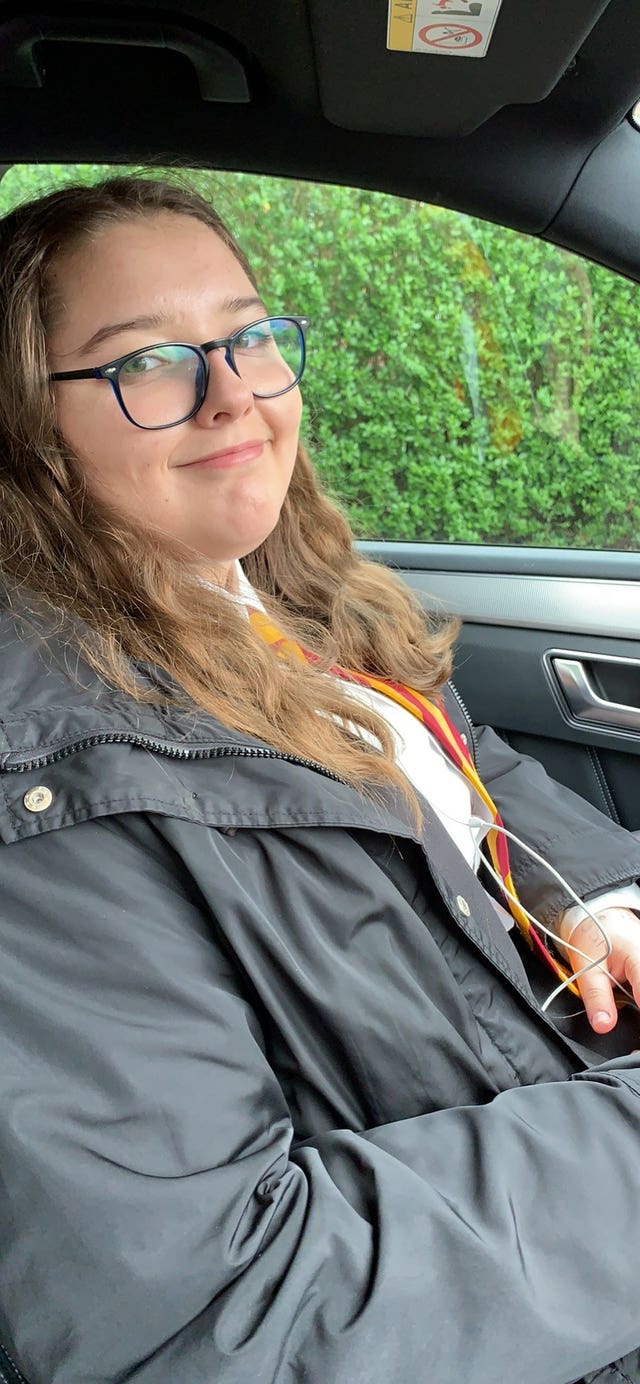Girl, 15, died after ‘rare complication’ during routine dental surgery
Hertfordshire teenager Denisa Alexandra Stefanoaia was having four teeth removed so she could have a brace fitted.

A teenage girl died after going for routine dental surgery so she could have a brace fitted, an inquest has heard.
Denisa Alexandra Stefanoaia, known as Alex, suffered “a rare complication of medical treatment” at Great Ormond Street Hospital (GOSH) in London when she was booked in to have four teeth removed on February 14 2020.
The 15-year-old was told the surgery would take no more than an hour and was put under general anaesthetic.

Medics said Alex quickly turned blue and resuscitation was attempted. She died in hospital five days later.
Recording a narrative determination, senior coroner Mary Hassell said: “The part of the jigsaw I’m missing is why when Alex bit on the tube did it have such a devastating impact?
“(Biting on the tube) is not that uncommon. It’s something seen routinely without devastating consequences.
“From the evidence that I have, I don’t know why this had such devastating consequences for Alex – and the clinicians treating Alex don’t know.”
The coroner dismissed any suggestion that neglect played a part.
The procedure lasted 19 minutes, and was considered by the surgeon to have been “very straightforward”, the inquest heard.
Giving evidence remotely on Thursday, Dr Atheer Ujam, a senior registrar at GOSH who carried out the surgery, described the procedure as “uncomplicated”, but said he later noticed there was a problem with the patient, who had mild asthma, sleep apnoea, and was obese.
He said: “I stayed in the theatre to make sure the patient was stable.
“I finished my notes … I went (back to the operating table) to see what was going on, that’s when I saw Alex – she was blue.”
Dr Ujam said a colleague told him it was a problem with Alex’s lungs, but that a short time later he could see blood coming from her mouth.
He said: “I began to feel for a pulse and we couldn’t find one.
“At that point (a colleague) said we have to start CPR … within 10 or 15 seconds there were many people coming into theatre.”
Dr Akane Iguchi, consultant anaesthetist at GOSH, was also in the operating theatre at the time and said she began to become concerned when she was unable to ventilate Alex’s lungs after the procedure.
She said: “We were trying to improve her lung capacity.
“I looked over at Alex’s face and she was biting the ET (endotracheal) tube and she was becoming blue.”
Dr Iguchi told the coroner that Alex’s obesity – she had a BMI of 42, while NHS guidelines state an ideal BMI for most adults is between 18.5 and 24.9 – meant she may have turned blue despite being deprived of oxygen for only “a matter of seconds”.
She said: “In her case, because of her severe obesity, her oxygen consumption is very high.
“All the factors combined make her very risky.”
She dismissed suggestions from Alex’s family’s lawyer that she failed to properly monitor the teenager, adding: “There was no time wasted, we recognised there was an issue, the team and everyone worked as quickly as possible.”
In a statement to the PA news agency, Alex’s mother Angelica Stefanoaia, who watched the case via videolink, described how the death of her daughter – her “best friend” – had impacted her life.
“I have cried every day since she died, desperate to bring her back,” she said.
“I begged them on my knees to do everything they could for her and save her and they simply said she wouldn’t wake up.
“When they told me she was poorly after the surgery, I never for one moment thought she would die.”
She added: “If we had had any idea that there was a risk, we would never have gone through with it.”
Mark Bowman, partner at Fieldfisher law firm, who is investigating a negligence case against the hospital trust, said: “It remains the family’s position that they were never fully informed of the specific risks that Alex faced as a result of her medical history, in particular given the evidence heard today that a patient with her history could turn blue within a matter of seconds of being deprived of oxygen.
“Further, the family are still of the view that the most likely explanation for the catastrophic outcome was a delay in recognising that Alex was biting on the endotracheal tube – a delay that should never have occurred.”





